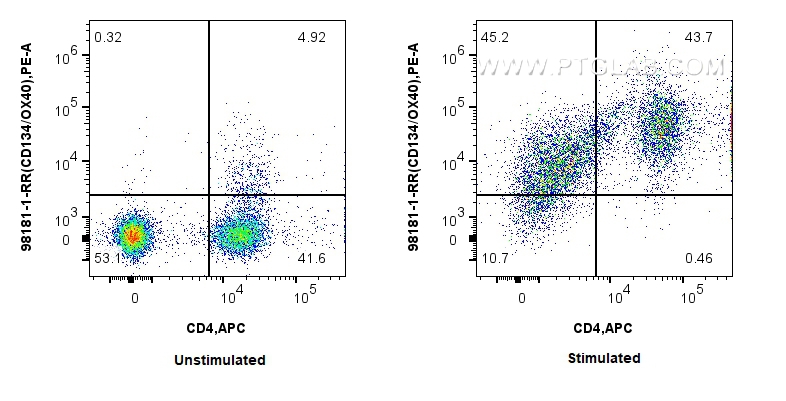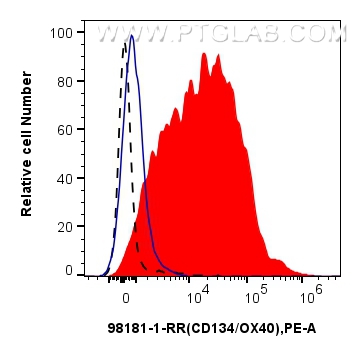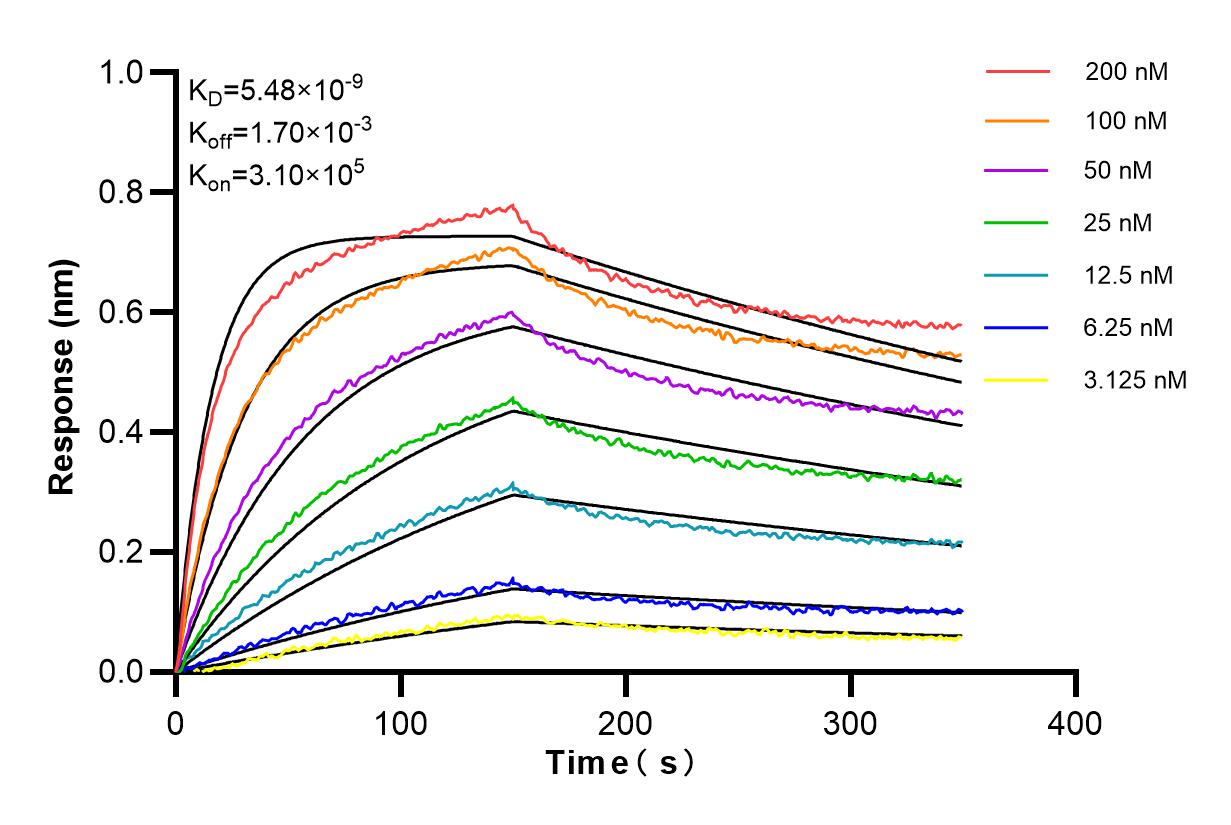Anti-Human CD134/OX40 Rabbit Recombinant Antibody
CD134/OX40 Uni-rAbTM Recombinant Antibody for FC
Host / Isotype
Rabbit / IgG
Reactivity
human
Applications
FC
Conjugate
Unconjugated
CloneNo.
241398G7
Cat no : 98181-1-RR
Synonyms
Validation Data Gallery
Tested Applications
| Positive FC detected in | PHA treated human PBMCs |
Recommended dilution
| Application | Dilution |
|---|---|
| This reagent has been tested for flow cytometric analysis. It is recommended that this reagent should be titrated in each testing system to obtain optimal results. | |
| Sample-dependent, Check data in validation data gallery. | |
Product Information
98181-1-RR targets CD134/OX40 in FC applications and shows reactivity with human samples.
| Tested Reactivity | human |
| Host / Isotype | Rabbit / IgG |
| Class | Recombinant |
| Type | Antibody |
| Immunogen | Recombinant protein |
| Full Name | tumor necrosis factor receptor superfamily, member 4 |
| Calculated Molecular Weight | 29 kDa |
| GenBank Accession Number | NM_003327 |
| Gene Symbol | CD134 |
| Gene ID (NCBI) | 7293 |
| Conjugate | Unconjugated |
| Form | Liquid |
| Purification Method | Protein A purfication |
| Storage Buffer | PBS with 0.09% sodium azide, pH 7.3. |
| Storage Conditions | Store at 2 - 8°C. Stable for one year after shipment. |
Background Information
CD134, also known as OX40 and TNFRSF4, is a member of the TNFR-superfamily of receptors (PMID: 2828930; 9766631). It is a type I transmembrane protein predominantly expressed on activated T cells which include CD4 and CD8 T cells, Th2, Th1, and Th17 cells, as well as regulatory T cells (Tregs) (PMID: 20307208). CD134 is activated by its cognate ligand CD134L (OX40L) and functions as a T cell co-stimulatory molecule (PMID: 26215166). CD134-CD134L interactions have been proposed as a potential therapeutic target for treating autoimmune diseases, cancer and infectious disease (PMID: 26215166; 19426222).
Protocols
| Product Specific Protocols | |
|---|---|
| FC protocol for CD134/OX40 antibody 98181-1-RR | Download protocol |
| Standard Protocols | |
|---|---|
| Click here to view our Standard Protocols |





